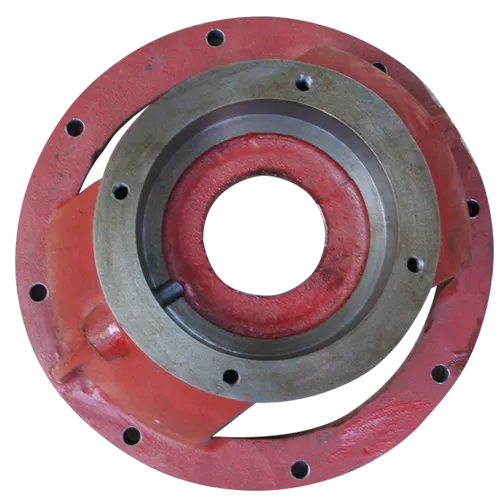Mobile:+86-311-808-126-83
Email:info@ydcastings.com
German
aluminum precision casting
The Importance of Aluminum Precision Casting
Aluminum precision casting has emerged as a vital manufacturing process in various industries due to its ability to create complex shapes with high accuracy and superior surface finishes. This innovative technique combines the benefits of aluminum's lightweight and strength with the precision required for intricate designs, making it indispensable for aerospace, automotive, electronics, and many other sectors.
Understanding Aluminum Precision Casting
Precision casting is a manufacturing process that allows for the creation of parts with exceptional dimensional accuracy. The process involves creating a mold into which molten aluminum is poured, allowing it to solidify and take the shape of the cavity. This can be done using several methods, including investment casting, sand casting, and die casting. Among these, investment casting is often preferred for its ability to achieve tight tolerances and excellent surface finishes.
The initial step in the casting process involves designing the mold. Advanced computer-aided design (CAD) tools are frequently employed to create precise models that reflect the desired component specifications. This high level of detail ensures that the casting process aligns perfectly with the intended design, minimizing material waste and reducing the likelihood of defects.
Advantages of Aluminum Precision Casting
1. Weight Reduction One of the primary advantages of using aluminum in precision casting is its lightweight nature. Compared to other metals, aluminum is significantly lighter, making it ideal for applications where weight is a concern, such as in automotive and aerospace components. This attribute contributes to improved fuel efficiency and performance.
2. Strength and Durability Despite its lightweight, aluminum boasts an impressive strength-to-weight ratio. When alloyed with other elements, aluminum can achieve even greater strength without sacrificing weight. This combination makes aluminum castings suitable for heavy-duty applications while maintaining structural integrity.
3. Complex Geometries The casting process allows manufacturers to create intricate shapes that would be impossible or prohibitively expensive to achieve through traditional machining. Features such as thin walls, internal passages, and complex contours can be produced with ease, enabling innovative designs and enhancing overall functionality.
4. Cost-Effectiveness While the initial investment in precision casting technology may be significant, the long-term cost savings are substantial. The ability to produce components with fewer machining operations and less material waste translates to lower production costs. Additionally, aluminum's recyclability and the energy-efficient nature of the casting process contribute to an overall reduction in costs.
aluminum precision casting

5. Excellent Surface Finish Precision casting techniques, particularly investment casting, yield components with superior surface finishes. This reduces the need for secondary machining, further optimizing production efficiency. Improved surface quality also enhances the aesthetic appeal of parts, which is crucial in consumer-facing applications.
Applications of Aluminum Precision Casting
The versatility of aluminum precision casting means it is employed across a wide range of industries. In the aerospace sector, companies rely on aluminum castings for components such as aircraft frames, engine parts, and landing gear, all of which require high strength and lightweight properties.
In the automotive industry, aluminum castings are used for engine blocks, transmission housings, and suspension components, contributing to the development of lighter, more fuel-efficient vehicles. Similarly, the electronics industry benefits from precision cast aluminum enclosures that provide durability and protection for sensitive equipment.
Challenges and Considerations
While aluminum precision casting offers numerous benefits, it does come with its challenges. The process requires skilled labor and specialized equipment, which can increase upfront costs. Furthermore, achieving the desired quality may necessitate rigorous quality control measures throughout the production process to minimize defects.
Additionally, the choice of aluminum alloy can significantly impact the performance of the final product, and selecting the right alloy for a specific application requires careful consideration and expertise.
Conclusion
Aluminum precision casting represents a remarkable intersection of artistry and engineering, allowing for the production of complex, high-performance components that meet the demanding needs of various industries. As technologies advance and the demand for lightweight, durable materials continues to grow, aluminum precision casting will undoubtedly play an increasingly critical role in shaping the future of manufacturing. Embracing this innovative process not only enhances product quality but also paves the way for more sustainable manufacturing practices in the years to come.
-
Superior Aluminum Castings in Automotive Engine PartsNewsAug.22,2025
-
Common Materials Used in Fan Housing ManufacturingNewsAug.22,2025
-
Symptoms of a Stuck Automobile Water Pump ImpellerNewsAug.22,2025
-
The Importance of Valve Castings in Water TreatmentNewsAug.22,2025
-
Welding Techniques for End Cap Stainless Steel FittingsNewsAug.22,2025
-
How to Install a Water Pump Connector ProperlyNewsAug.22,2025











